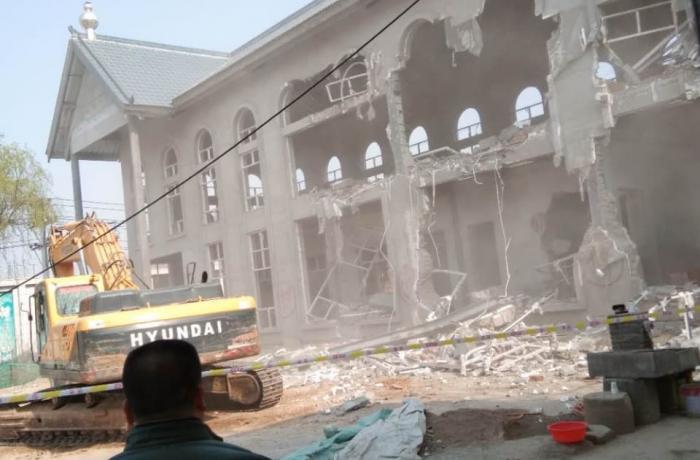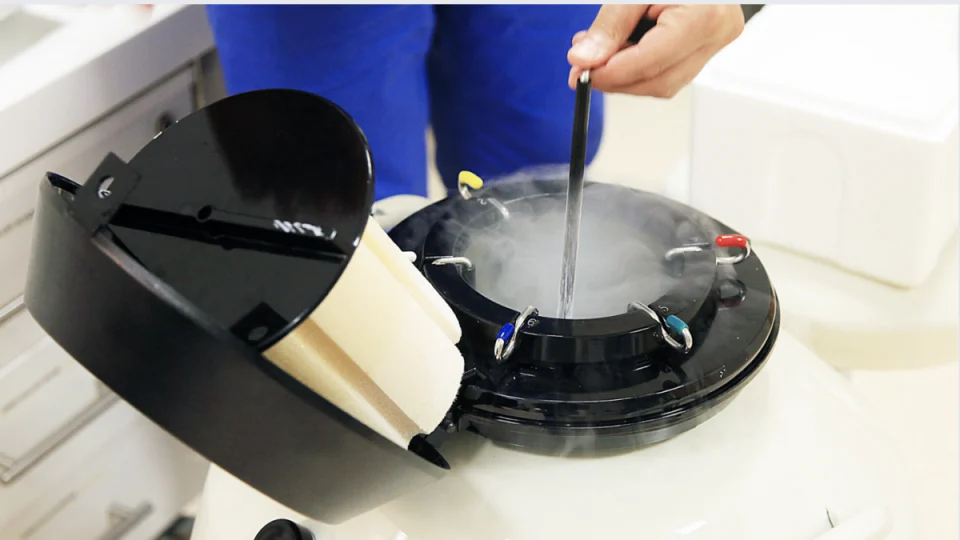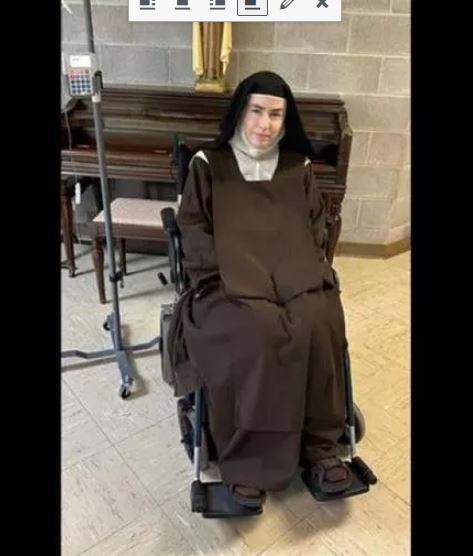James V. Schall, S.J.: “Who Are You?”
April 9, 2019Pres. Trump: Federal Judge’s Immigration Ruling ‘So Unfair to the U.S.’
April 9, 2019
By di Sandro Magister, L’Espresso, April 8, 2019
The Chinese regime is also applying its agreement with the Holy See this way. With the bulldozer that under police escort – see photo – razes to the ground on April 4 the building of a parish in Qianyang, which had on its top floor a room for the Mass and on the ground floor a free clinic for the poor, run by nuns.
The fault of the pastor and of the two thousand faithful of this “clandestine” parish is the same as that of the diocese of which it is part, that of Fengxiang, in Shaanxi, the only diocese in all of China in which none of the baptized, from the bishop to the last of the faithful, has yet agreed to enroll in the Chinese Patriotic Catholic Association, the main instrument with which the regime subjects the Church to itself in the name of its “independence” from Rome that Benedict XVI defined as “irreconcilable” with Catholic doctrine, in the 2007 letter to Chinese Catholics still declared valid by his successor.
But it’s not only the material destruction of this as of many other buildings of the Catholic Church. What is more serious is the systematic suffocation of that big portion of the Church which does not have official recognition from the Chinese government, but also does not want to submit to the blackmail of being admitted to legality only if it agrees to enroll in the Patriotic Association.
The case of the diocese of Mindong, in Fujan, is perhaps the most instructive, if one wants to understand how the Beijing authorities are putting into practice the secret agreement signed last September 22 with the Holy See.
Curiously, precisely the diocese of Mindong is the one that a year ago had been indicated as the “stress test” for the good success of the agreement between the Holy See and China, in an article by Gianni Valente, the expert on Vatican affairs most read and cited by Pope Francis.
But to judge by what is happening there today, this diocese is instead the “test” not of the agreement’s success, but of its failure.
*
Easter is drawing near, but the bishop who currently plays the role of auxiliary in the diocese of Mindong, Vincent Guo Xijin, is at serious risk of being blocked from celebrating both the Chrism Mass, on the morning of Holy Thursday, and the liturgies of the subsequent Triduum.
Last year as well Guo was blocked from celebrating the Paschal rites. And the same in 2017, when just before Holy Week he was arrested by the police, to reappear twenty days later.
Over the past two years, the punishment had been imposed over his refusal to celebrate the rites of Easter together with the excommunicated government-appointed bishop Vincent Zhan Silu, installed by the communist regime in his same diocese.
But then on September 22 2018 came the agreement between the Holy See and China on the appointment of bishops, and Rome not only revoked Zhan’s excommunication, but it convinced Guo to give up the leadership of the diocese to him, accepting for himself the role of a simple auxiliary, in spite of the fact that in Mindong there is a big disproportion between the “clandestine” Church to which Guo still belongs, 80,000 faithful strong, 57 priests, 200 nuns, 300 consecrated laity, hundreds of catechists, and the “official” Church of the formerly excommunicated Zhan, with a few thousand faithful and a dozen priests.
To set up in this way, entirely to the advantage of the Chinese regime, the structure of the diocese of Mindong, there went from Rome to China, in December of 2017 and then again in December of 2018, one of the Vatican diplomats most experienced in the matter, Claudio Maria Celli.
The first time Guo resisted, but the second time he said yes. To obtain his obedience, Celli told him that it was Pope Francis himself who was asking him for this “sacrifice for the unity of the Chinese Church.”
The fact is, however, that in the face of the step back by Rome, the Beijing authorities did not move a millimeter. The revocation of Zhan’s excommunication was not at all reciprocated with an official recognition of Guo on the part of the Chinese government. He continues not to be recognized as a bishop and to live, as a result, in illegality, at the mercy of the regime, which at any moment can arrest him, confine him, block him from celebrating.
“Asia News,” the authoritative agency of the Pontifical Institute for Foreign Missions that also publishes in Chinese, has revealed that in the past few months the Chinese authorities have repeatedly set as a condition for Guo’s recognition his enrollment in the Patriotic Association, but he has always refused.
And the same thing has happened with dozens of “clandestine” priests of his diocese. None of them so far has agreed to sign a document in which it is demanded that they switch to the service of the new bishop Zhan, obey the laws of the state, enroll in the official organizations, support the principle of the Church’s “independence.”
In addition to being vice-president of the Patriotic Association and of the pseudo episcopal conference that assembles only the bishops recognized by the government, Zhan is also a member of the Chinese People’s Political Consultative Conference, which held its last plenary session in Beijing in early March. Responding during those days to a journalist of “Sintao Daily” who asked him what he thought about the obligation laid on Catholics to enroll in the Patriotic Association in order to do away with the “clandestine” Church, Zhan said that this is the only way to make it so that “the Church is united.”
In fact this is how there risks being put into practice, in China, the hope of Pope Francis for a process of reconciliation between “official” and “unofficial” Catholics. From Wenzhou, from Henan, from Hubei and from numerous other places there is news of continual pressure in this direction on “clandestine” bishops and priests, in some cases with offers of money. There seems to have fallen into the void the timid reserve expressed in an interview with “L’Osservatore Romano” on February 3 by cardinal prefect of “Propaganda fide” Fernando Filoni: “I hope I never have to hear or read again about local situations in which the agreement is exploited for the sake of forcing persons to do that which the Chinese law itself does not require, like enrolling in the Patriotic Association.”
*
The case of Mindong is not at all an isolated case. And not even the most serious. At the end of March, in the diocese of Xuanhua, in the province of Hebei, the police arrested and took to an undisclosed location its bishop, Augustine Cui Tai. It was the umpteenth in a series of arrests that for years have punished this “unofficial” bishop, this time betrayed by one of his priests, named Zhang Li, who reported him to the authorities and accused him of not obeying the new norms of the Vatican, which according to him require all the “clandestine” to return to the “official” Church and to submit to its conditions.
But at the Vatican there is no sign at all of reaction to this terrible news on the post-agreement. In mid-March, just before the official visit to Italy of Chinese president Xi Jinping, the Jesuit Antonio Spadaro, director of “La Civiltà Cattolica” and the lead adviser and ghostwriter of Pope Francis, published to great fanfare a book entitled “The Church in China. A future yet to be written,” with an enthusiastic preface by cardinal secretary of state Pietro Parolin.
The Vatican authorities also made it known in various ways, during those days, that the doors of the Apostolic Palace were open, wide open, to a visit from the Chinese president to the pope.
But the visit didn’t happen. From Xi Jinping it appears that it was not even taken into consideration. Another slap for the Church of Rome, this one also taken in silence.
———-
In another recent interview, at a conference on February 28 at the Pontifical Gregorian University, cardinal secretary of state Pietro Parolin compared the agreement with China and the one signed a few years ago between the Holy See and Vietnam, both of them secret.
“At times,” he said, “the most delicate and important matters have been settled in secret between rulers or between heads of state, based exclusively on the spoken word.”
The one with Vietnam, he continued, can be called a “gentlemen’s agreement,” meaning an “informal agreement between two sides, the essential characteristic of which is that its realization is based on honor, on good faith and on respect for the spoken word, and that it cannot be defended judicially. A concrete case is represented by Vietnam, where episcopal appointments take place according to a procedure agreed verbally with the government.”
While “a ‘sui generis’ case is the agreement on the appointment of bishops signed on September 22 2018 between the Holy See and the People’s Republic of China: an international agreement between two sides for which there is not yet reciprocal formal recognition.”







